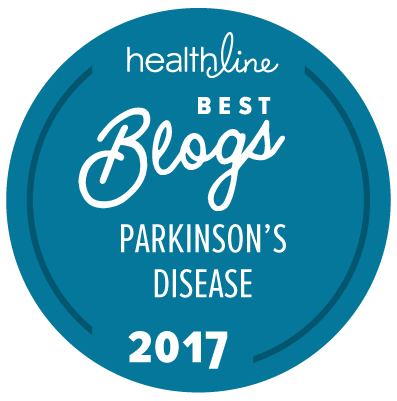Time for a re-run of an article I wrote six years ago. Speech is an ongoing concern for anyone with Parkinson's disease, but then, it is for many people and I don't think we are consciously aware of how differently we treat those who have challenges with speech. Even having a quiet voice can be a challenge in social situations. In a crowded room, it's hard to hear us. How much easier it is to start a conversation with someone whose voice is loud and clear!
I have had a number of friends who have struggled with speech challenges. Though conversations with them will take time and effort, they are always worth it. For better or worse, it is all too easy to stop trying to communicate with others, especially when you are met with people who equate clear speaking with intelligence.
So, here is my article again... titled: SPEAK UP!
One of my favorite scenes in the movie, "The King's Speech", is during a speech therapy session where the King starts swearing as he practices for the speech he has to give. This pretty well captures my feelings about public speaking.
Even without a speech impediment, I was a quiet, shy child who would rather eat bugs than have to give a book report in front of the class. I was in a school play, once. Well, twice, if you count my first role as a tree. Trees don't talk. In my only speaking role, I was a bad angel and my one line consisted of three words, "Keep the money". That the main character decided to listen to the good angel instead, may have had something to do with the fact that my lines could not be heard if you were more than three feet away from me. I came to dread the inevitable words from my teachers, my parents, and even my friends: "Speak up! We can't hear you!" That's easier said than done.
As an adult, I worked hard to improve in this area, though I never was able to project well, because leading parent meetings and giving educational talks was a required part of my job. I eventually came to enjoy speaking to groups, as long as I was speaking about something that I was passionately interested in.
That changed when Parkinson's disease became a part of my life. Even before I was diagnosed, I started having more difficulty with speaking. My voice became quieter and I started stumbling over my words, sometimes freezing in the same way I freeze when I move. This was my first indication that I needed to leave my teaching job. Doing this once during a parent talk was embarrassing enough as I would totally forget what I had been talking about. I would do this repeatedly. I didn't want the parents to think I was totally stupid. Before that year was out, I let my colleagues know that I would not speak to groups at evening meetings.
Once I was diagnosed and my medications stabilized, things got better. I don't freeze as often either in speech or while walking. As with most everything else with my Parkinson's, evenings are always off times. I am not articulate in the evenings. Difficulty with speech is also one of the symptoms that immediately comes back as soon as my meds begin to wear off at any time of the day.
I'm not teaching anymore and I'm not required to speak in front of groups. My friends and family understand that it takes time for me to find the words I need and they are usually patient with me. So, why, as the King would say, should I give a shit about how I speak?
There's a good reason to care about this. My family and friends might be used to me but I've found that people respond to me very differently depending on how articulate I am at any one moment. That includes my doctors, even my neurologists who specialize in seeing people with Parkinson's disease. If I am having a good day and speaking well, my doctors are more likely to take me seriously and treat me as an intelligent adult. If my speech is slurring a bit or if I stumble for words, it seems to me that my doctors are more patronizing.
We tend to equate articulate speech with intelligence. This is one reason I find writing to be so therapeutic. I don't slur my words when I write, or at least when I type. My handwriting I can't guarentee. If I stumble over what I want to say next, there isn't anyone around to get impatient with me. I can take all the time I need. When my first neurologist started reading my articles, she suddenly began relating to me more as a person than a patient. She treated me as an intelligent adult. I'm not saying that she treated me badly before; it's just that when time is limited, we all tend to go with our immediate reactions and judgements. I don't know many doctors who have the time to really get to know all of their patients.
At the end of the movie, the King has given his speech over the radio, with his speech therapist standing nearby. He does well, stumbling a bit at the beginning but ultimately delivering his message in a heartfelt and beautiful way. Afterward, his therapist looks at him and tells him that he still stumbled over the w's.
"That's okay", the King says, "I had to throw in a couple of them so they'd know it was me."
If a king can do this, I guess I won't worry too much about stumbling over my words from time to time. Maybe one day, I'll take advantage of a speech study for people with Parkinson's disease. Until then, at least when I stumble, you'll all know it's still me.








